Preschool and Kindergarten
3 -6 years
During the preschool years, children use their senses to consciously absorb and explore everything in their environment. The preschool-aged child continues to develop what they have acquired during the first three years of life (mobility, motor skills, language, social skills, and physical independence) by actively seeking out certain experiences. They demonstrate an innate desire to do things for themselves and they are predisposed to learning things like music, sequencing, order, letter sounds, and numbers.
“Education is a natural process carried out by the child and is not acquired by listening to words but by experiences in the environment.” - Dr. Montessori
The Preschool / Kindergarten Program
Our preschool Primary Program includes the traditional Montessori curriculum, language immersion in English and Spanish or English and French, Kodaly music lessons, and developmentally appropriate materials. Set in beautifully prepared Montessori classrooms, guides create a warm and welcoming environment that meet the developmental needs of each child.
Quick Facts
Here are some quick facts about our Preschool/Kindergarten Classroom:
- Location: Oakland campus
- Size: 15 - 25 students
- Teachers: 3
- Ages: Mixed-aged. Students range in age from 3 - 6 years.
- Immersion: Spanish and English or French and English classrooms where at least one of their three teachers speaks in the second language at all times.
- Instruction: A carefully planned combination of individual and small group lessons. Lessons are concrete in the early years and revisited several times to aid understanding or present increasing degrees of abstraction and complexity
Our Goals
Our goals in the classroom:
- Foster independence and responsibility
- Inspire a love of learning and a growth mindset
- Encourage curiosity, self-discovery, and exploration
- Build a sense of community
- Develop concentration and attention span
- Aid in courteous social interactions
- Develop fine and gross motor skills
- Promote language acquisition
- Develop patience and persistence
- Promote self-confidence
Daily Schedule
A Typical Toddler Pre-Primary Daily Schedule includes:
- Early/regular drop-off and regular/late pick-up
- Uninterrupted indoor work period
- Individual and group lessons
- Morning and afternoon snack time
- Group circle time
- Morning and afternoon outdoor playtime
- Lunchtime
- Naptime
Preschool and Kindergarten Curriculum
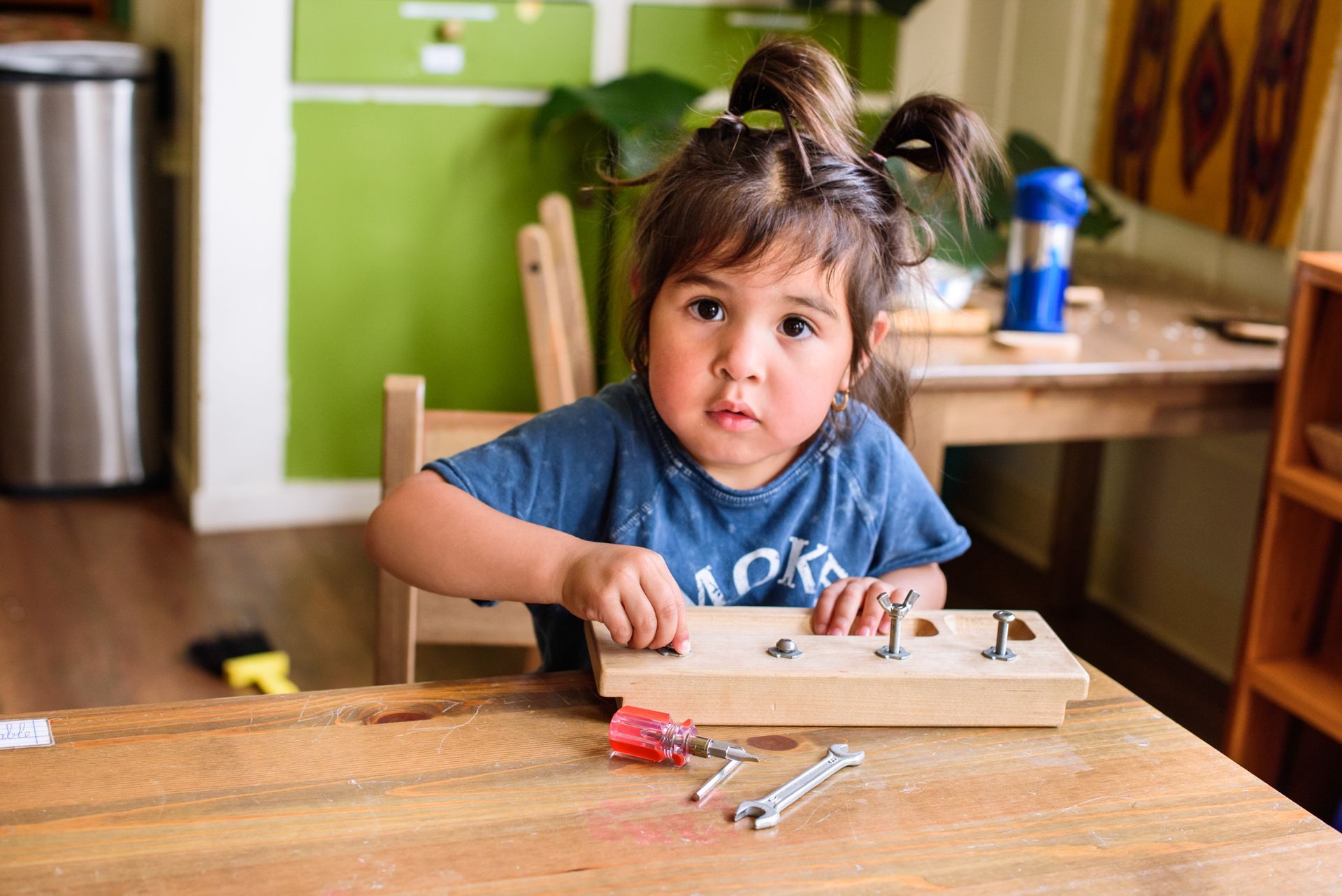
Practical Life
This area focuses on developing independence, responsibility, order, concentration, coordination, and fine and gross motor skills. Students learn to take care of their needs, the needs of others, and their environment. They also focus on character development, social skills, grace and courtesy, and conflict resolution.
Practical life exercises at the Primary level include multi-step activities such as food preparation and cleaning exercises that challenge memory and sequencing skills. Early Practical Life exercises are open-ended, creating an opportunity to develop concentration and grow the attention span naturally.
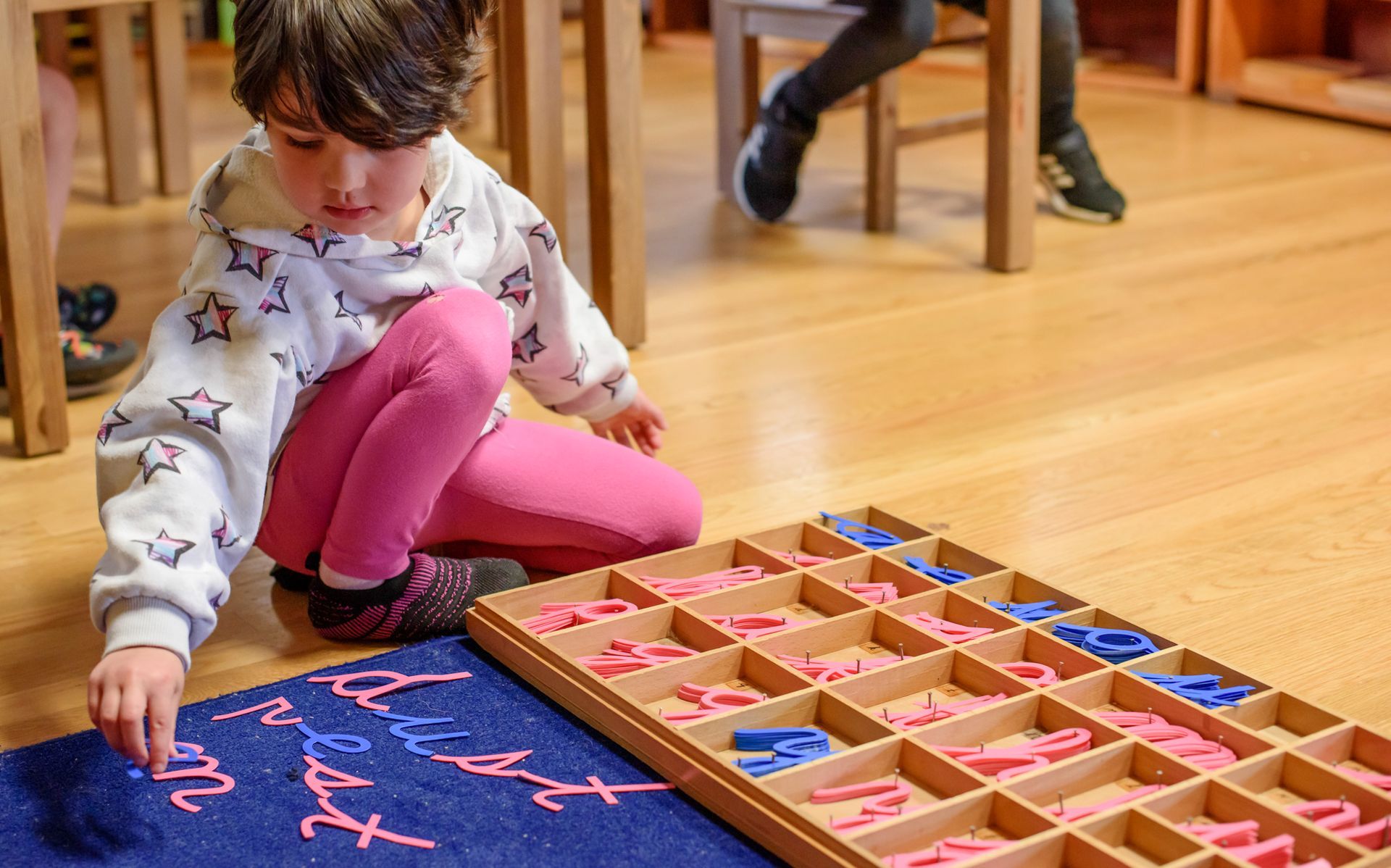
Language
Young children are in a sensitive period for absorbing languages. Lessons in this area focus on oral language, pre-reading, pre-writing, writing, and reading skills. Students learn to communicate verbally and mimic sound and mouth movements to learn the phonetic sound for each letter. They also begin their formal education in a second language. Students acquire proper accents and language patterns from native-speaking faculty. The written form of the second language is introduced based on the readiness of each child.
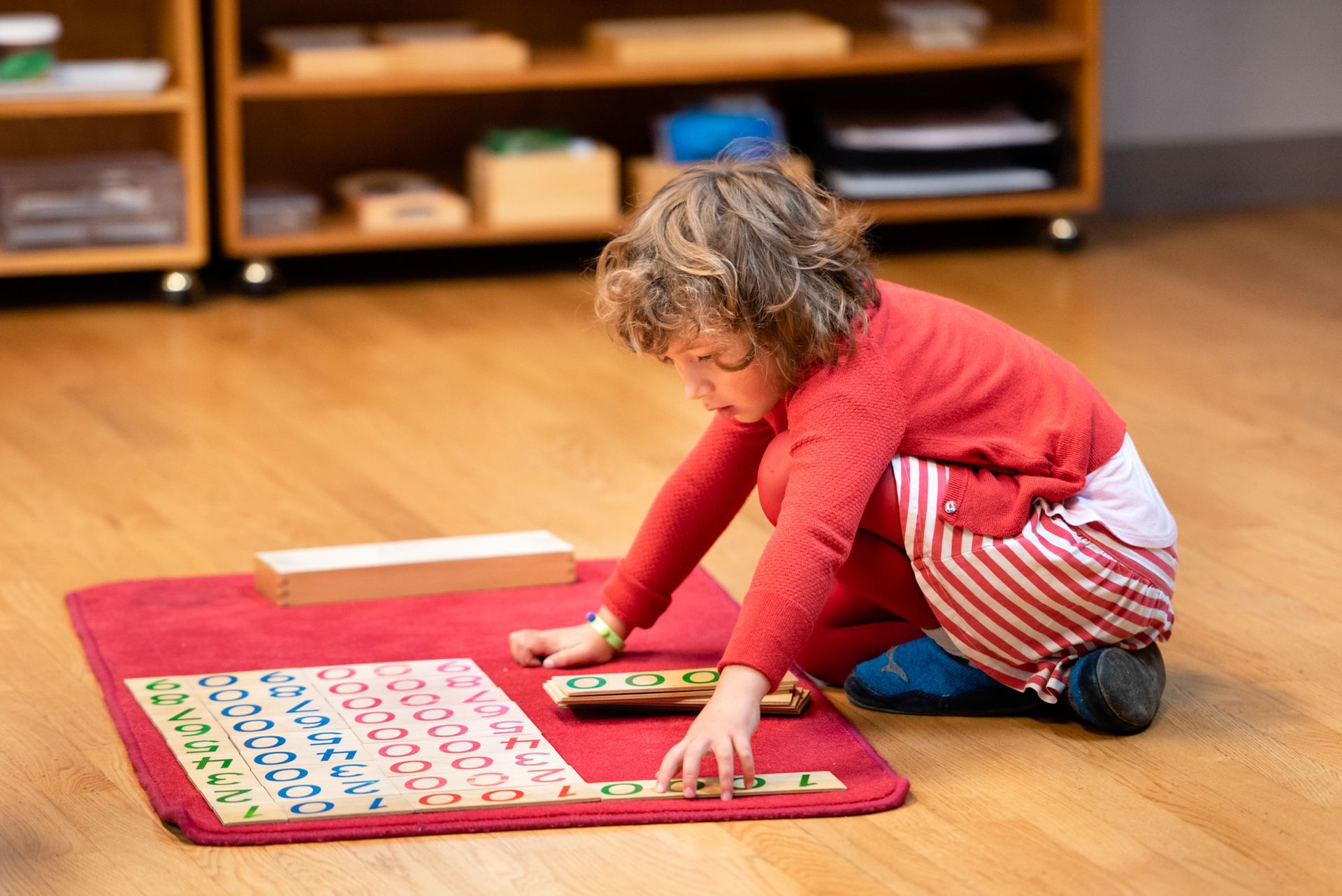
Math
Dr. Montessori designed beautiful and mathematically precise materials to help children make sense of abstract concepts through concrete and hands-on experiences. Montessori math follows a clear, logical, and sequential path to introducing math concepts and achieving mastery. The combination of sequential lessons, concrete Montessori materials, and precise presentations by teachers aid deeper understanding that lays a strong foundation in Math. Students get a sensorial impression and understanding by manipulating tangible material representations of the decimal system, mathematical operations, and fractions. Linear and skip counting, geometry, and patterning are other areas of study.
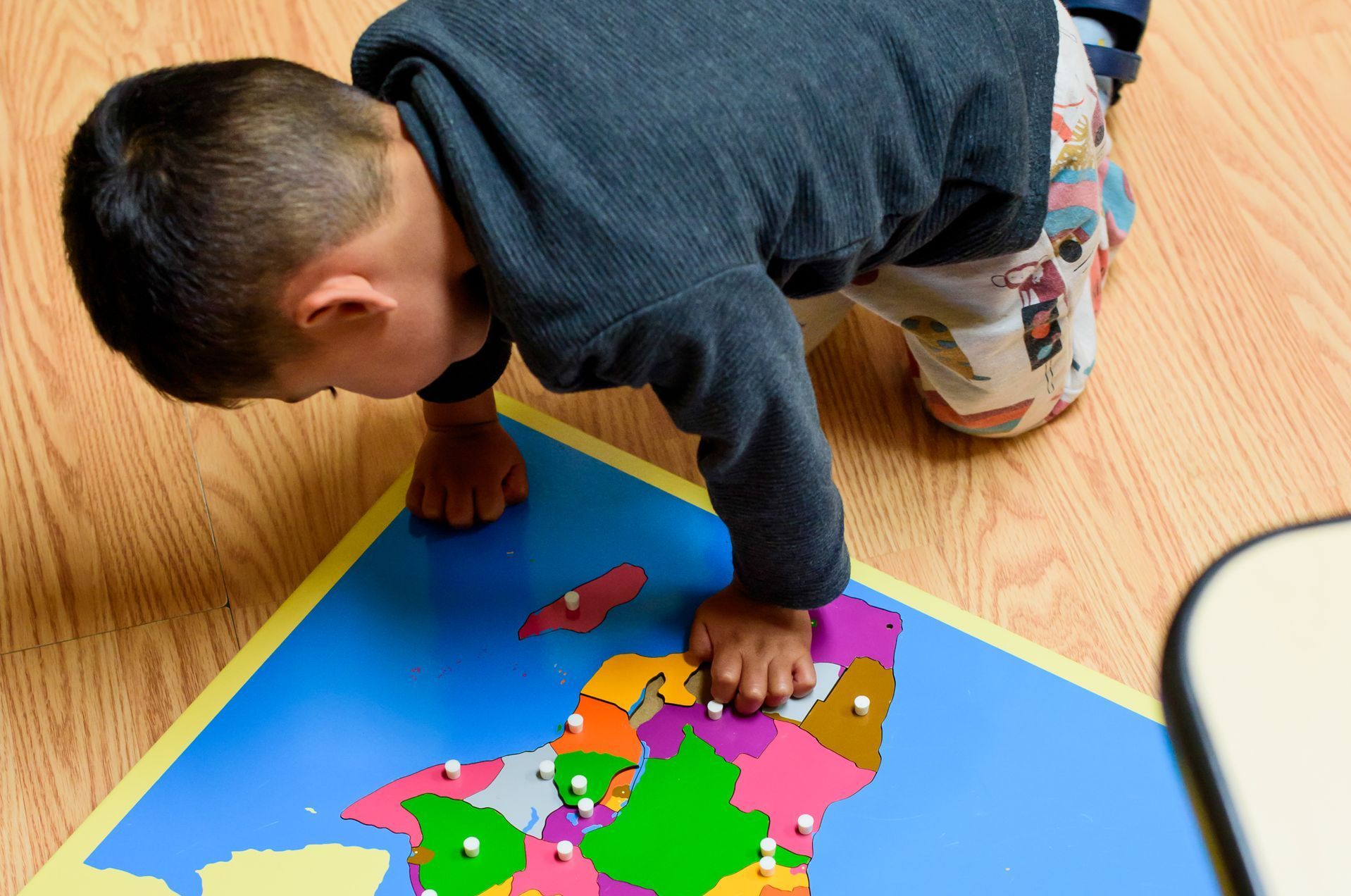
Cultural
Cultural studies build a deeper understanding of the larger world by exploring geography, social studies, botany, zoology, earth science, and physics. Continent study, plant and animal studies, world cultures, and science experiments are students’ favorite areas of exploration.
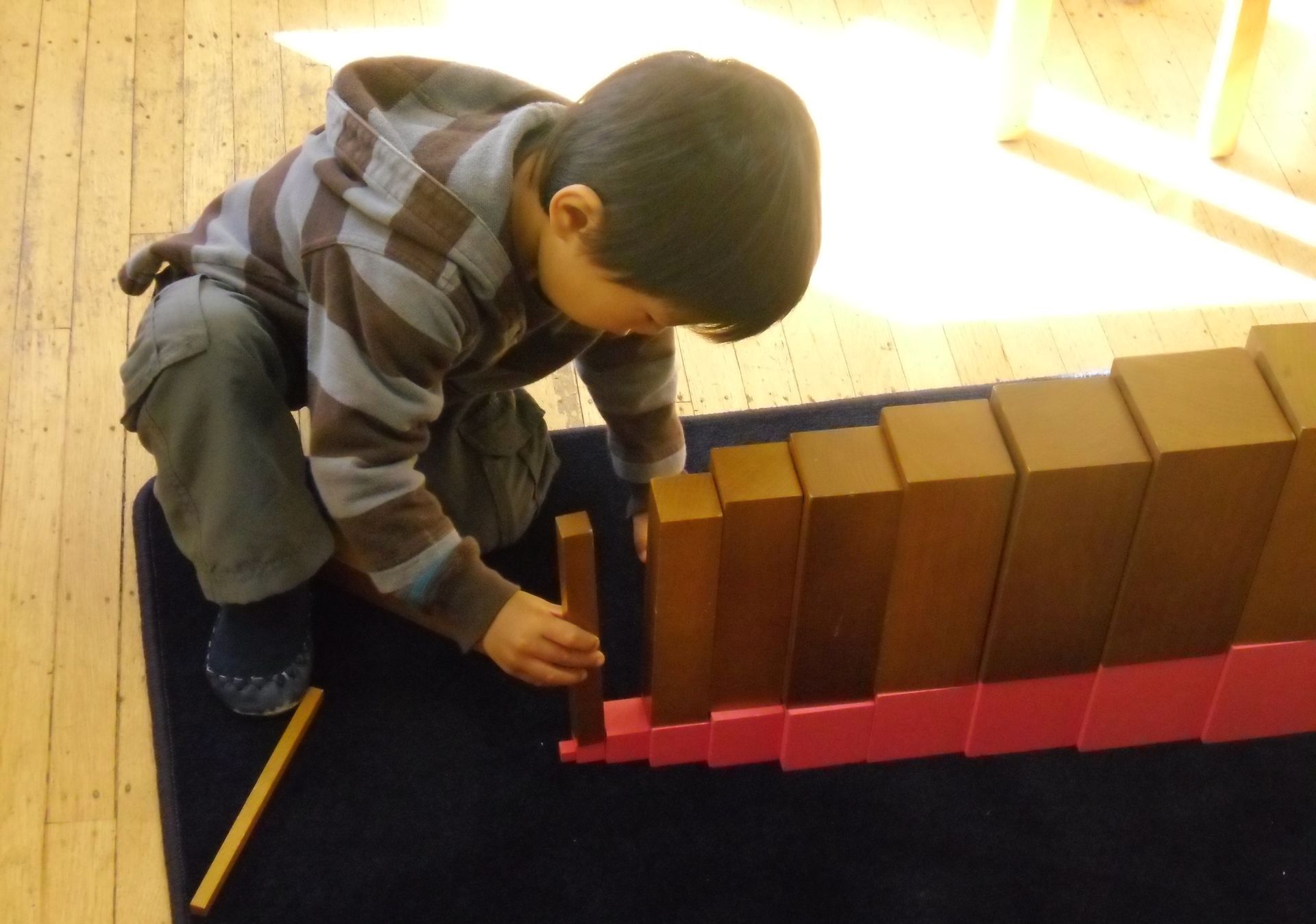
Sensorial
Sensorial materials are unique, visually inviting, and purposefully designed to focus on sensory development and bring order and refinement to sensory impressions. Through hands-on and experiential manipulation, students hone their visual, tactile, auditory, stereognostic, olfactory, and gustatory senses. The precisely and carefully designed sensorial materials are also used in studying geometry and concepts in art (color categories, tints, and shades).
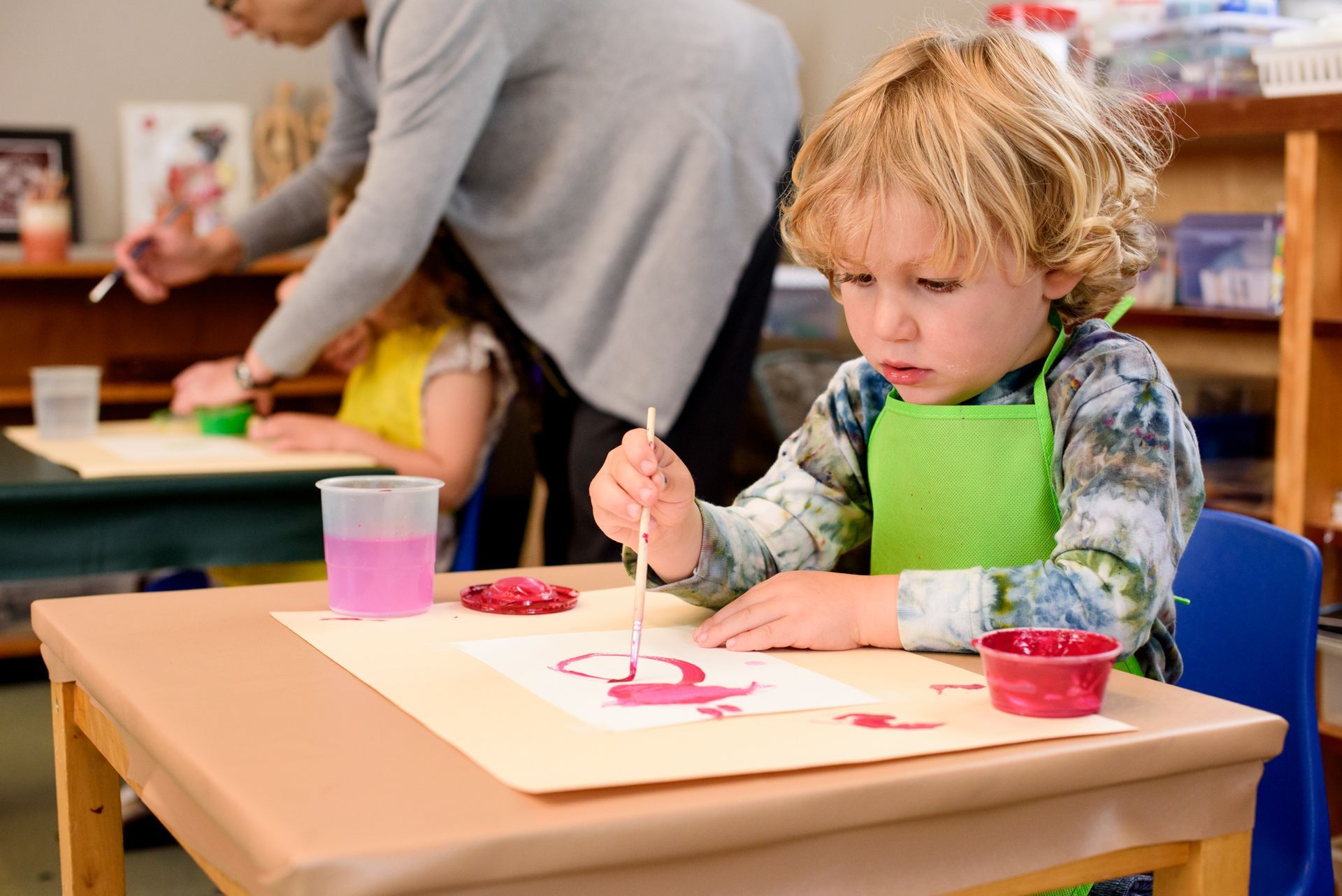
Art
Our qualified art instructor guides students to express their creativity and develop knowledge and skills with various art materials in a dedicated Art Studio space. The curriculum includes art appreciation, genres of art, and learning techniques such as pencil pressure, brushstroke, textures, and color theory.
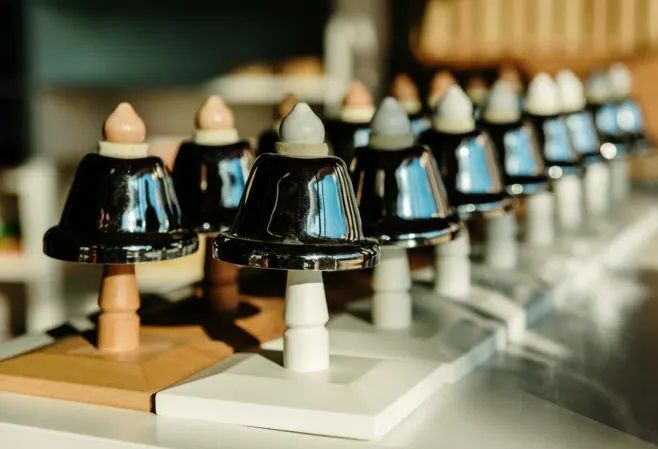
Music
Our Primary music instructor follows the Kodály Method, a complete and comprehensive approach to music education. Students learn to sing, build musical skills through Solfège, and explore folk songs that connect them to world cultures through music.
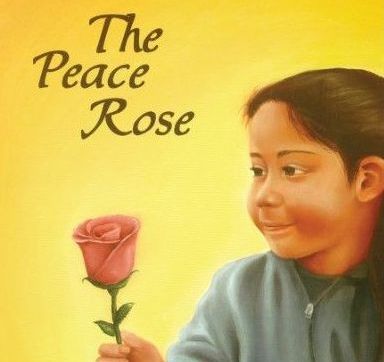
The Peace Rose by Alicia Olson
Peace Education
We integrate Peace education into the curriculum. Peace education teaches students to practice values that shape character, attitudes, and behaviors that serve humanity. It empowers students to bring peace and harmony within themselves, their interactions, and their classroom community.
We hope you will
join us for a tour to learn more about our program by scheduling a visit.
“The teachers in our children’s Preschool/Kindergarten classrooms have been absolutely exceptional as guides to social emotional development, as well as academic learning. The Montessori experience is genuinely magical for children in the 3 to 6 age group. ”
T. D.
“In the Preschool/Kindergarten Program, the children demonstrated how much they were capable of in a safe space that continuously offered enough challenge. From the tiniest tots feeling empowered to sweep up their bread crumbs to the older children completing mathematics facts by heart or composing creative stories in beautiful cursive, the children understood that the tools were there for them and that support was available just in case, but that they themselves could accomplish great tasks through repetition and refinement. They created foundational impressions of how dynamic education can be: how to think critically, how to pursue one's passions, how to collaborate in a group, how to overcome a hurdle gracefully, how to apply oneself, and so forth. These are some of the most sacred years in life, and choosing the right environment is critically important. The amount of brain development that occurs in the first few years of life is staggering. If our children can be in an environment that is designed with their developmental needs in mind, then we present them with better chances for lifelong success. ”
